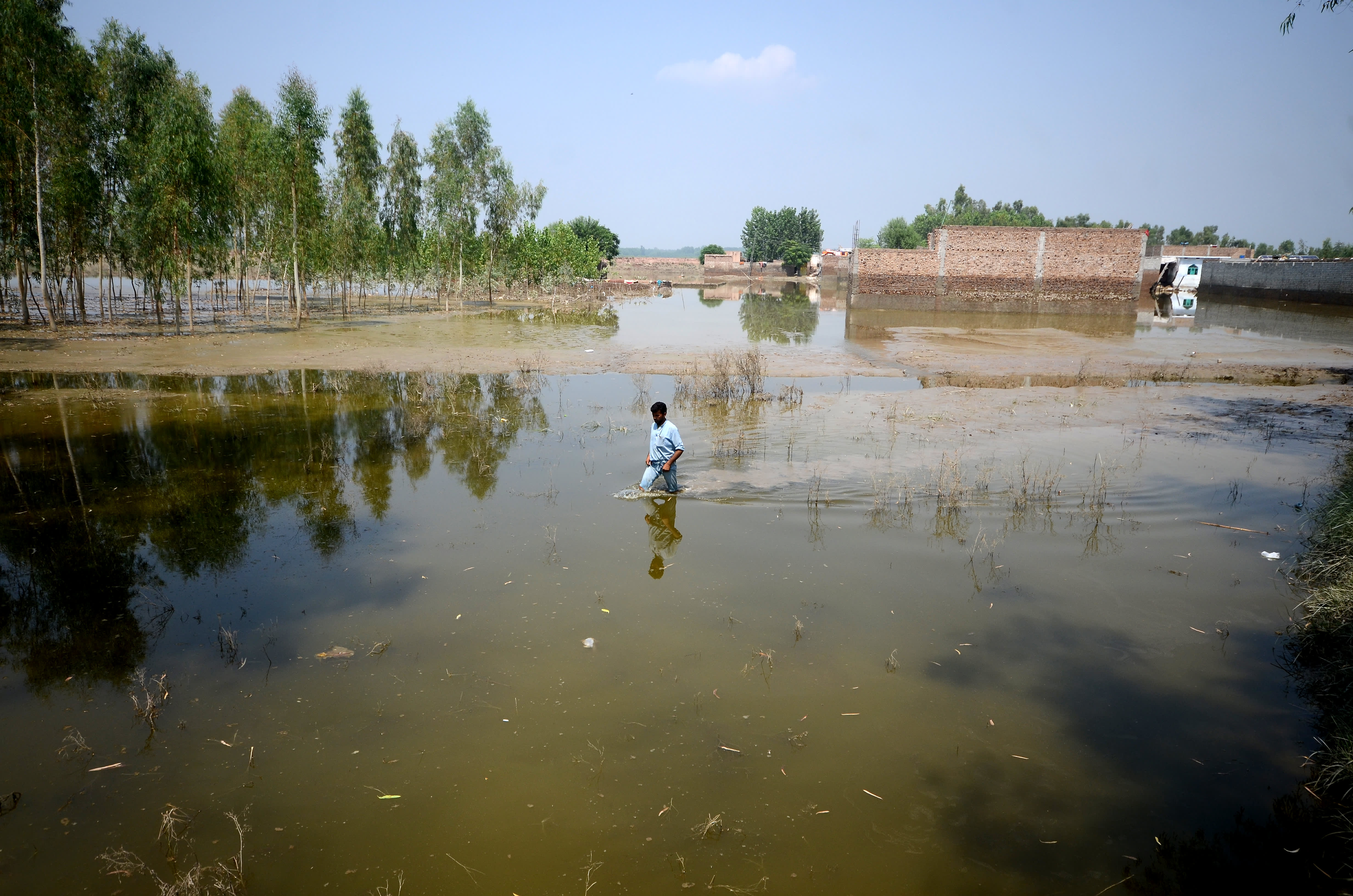
The United Nations Children’s agency on Friday warned that a year on from Pakistan's devastating floods, an estimated 4 million children continue to need humanitarian assistance and access to essential services as a shortage of funds remains a hurdle in recovery.
The warning from UNICEF comes as authorities in Pakistan's eastern Punjab province are racing against time to evacuate people from areas affected by the overflowing River Sutlej. Since Aug. 1, rescuers have evacuated over 100,000 people from marooned areas in the districts of Kasur and Bahawalpur.
More than six months ago, dozens of countries and international institutions at a U.N.-backed conference in Geneva pledged more than $9 billion to help Pakistan recover and rebuild from last summer's floods. But most of the pledges were in the form of loans for projects, which are still in the planning stages.
“This season’s monsoon rains are worsening the already challenging conditions for flood-affected communities, tragically claiming the lives of 87 children across the country,” UNICEF said in a statement.
Get Tri-state area news delivered to your inbox. Sign up for NBC New York's News Headlines newsletter.
It said an estimated 8 million people, around half of whom are children, continue to live without access to safe water in flood-affected areas. It said more than 1.5 million children still require lifesaving nutrition interventions in flood-affected districts, while UNICEF’s current appeal of $173.5 million remains only 57% funded.
“Vulnerable children living in flood-affected areas have endured a horrific year,” said Abdullah Fadil, UNICEF representative in Pakistan. “They lost their loved ones, their homes and schools," he said. The return of monsoon rains has raised fears of another climate disaster, he added.
Last year's floods caused more than $30 billion in damages as large swaths of the country remained underwater for months, affecting 33 million people and killing 1,739. The deluges destroyed or damaged 30,000 schools, 2,000 health facilities and 4,300 water systems.
UNICEF said one-third of children were already out of school before the floods, while malnutrition was reaching emergency levels and access to safe drinking water and sanitation was worryingly low.
Southern Sindh province was one of the worst hit last year. But Ajay Kumar, a spokesman for the local disaster management agency, told The Associated Press that authorities haven't received any complaints or demands from districts affected by the floods.
People who were living in relief camps or on the roadside have returned home because they received compensation for the damage and loss suffered, he said. Local organizations are carrying out reconstruction and rehabilitation work on houses, schools and health care facilities. “I can say that the situation here is normal," he added.
In its statement, the children’s agency said because of support from the international community, aid reached 3.6 million people with primary health care services. Access to safe water was enabled for 1.7 million people in areas where water networks were damaged or destroyed, reaching over 545,000 children.
Mental health and psychosocial support was also provided to 258,000 children, it said.
UNICEF called on Pakistan and aid agencies to increase and sustain investment in basic social services for children and families. "The flood waters have gone, but their troubles remain, in this climate-volatile region,” said Fadil.
—-
Zarar Khan contributed to this report.



